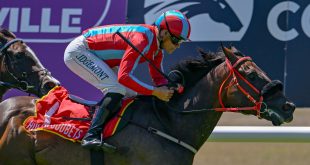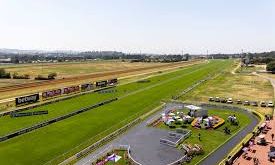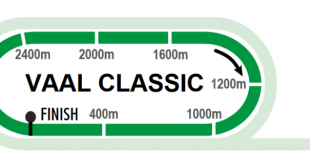A grossly unfair consequence emanating from a false start being called at the Greyville meeting on Sunday would not have happened had the British racing rule pertaining to false starts been in place and the National Horseracing Authority (NHA) should look into either instituting this rule or having a rethink on what constitutes a false start.
On the other hand, the worst case scenario unravelled on Sunday. In another circumstance the horse that reared could have been the odds-on favourite and many would then have been aggrieved had a false start NOT been called, presuming the horse had then run unplaced.
However, if put to the vote, rules which lead to less false starts would likely be the winner because false starts invariably lead to false results. The relevant British Horseracing Authorities (BHA) rules, outlined later in this article, lead to a virtual absence of false starts in the UK.
In the sixth race on Sunday over 1000m Good Emperor reared as the starter pressed the button and the starter deemed it thus to have not had a fair start. A false start was duly called and the red flag was waved. However, being sprinters three of the horses were unable to be restrained and had to be scratched after running the full distance of the race. The connections of this trio, one of whom had travelled all the way from Johannesburg, thus lost out on potential prize money through no fault of their own horses. Good Emperor also had to be scratched as he was injured when rearing. The punters later felt aggrieved because among the horses who bolted was the original favourite That’s Life and in the five-runner re-start the new favourite Panza finished last and thus knocked many out of the Pick 6, PA and Jackpot.
In the NHA set of rules, rule 61.5.10.1 states: Should the starter consider that through any faulty action of the starting gates or from any other cause, a fair start has not been effected, he may declare a “no start”.
There is no further addendum defining what “any other cause” is allowed to be. It is simply left to the discretion of the starter.
Anywhere in the world the starter should not press the button if a horse is up on its feet. However, a problem occurs when the horse rears a split second before the starter presses the button. In South Africa the starter has the power to rectify this mistake by immediately declaring a false start.
The starter does not have this power in Britain.
In the British Horseracing Authorities (BHA) rule book there is a special rule, rule 38, headed “False starts.”
The first part of this rule states:
38.1 The Starter may declare a false start
38.1.1 if he considers that through any faulty action of a starting gate or a starting stall a fair start has not been effected,
38.1.2 when a horse has broken away before the race has been declared Off, or
38.1.3 if, for safety reasons, the Starter releases the tape of the starting gate but does not intend to start the race.
Thus in Britain a horse rearing at the last moment is treated the same as a horse dwelling or mis-timing the break; it is its own fault and there is no sympathy.
In South Africa, in the event of a false start not being called, there is provision in the current NHA rules to deal with horses who have been later adjudged to have suffered unfair starts. These horses are then declared non-runners provided they do not run in the first four. However, this rule itself is controversial and can never please all parties concerned.
In Sunday’s scenario the British rule would have worked well and prevented the calamity that ensued, because the only horse who would have lost out would have been Good Emperor. He had to be scratched before the re-start anyway and might have been declared a non-runner as the starter should in theory not have pressed the button when the horse was up on its feet. Furthermore, he was an outsider, so not many punters would have even noticed his non-participation.
However, there are other circumstances where the British rule would not have worked well. For example, the day Variety Club backed out of his stall as the starter pressed the button in the L’Ormarin’s Queen’s Plate. There would have been pandemonium that day had a false start not been called.
Whichever way it is looked at, the rules pertaining to starts can never please everybody in every scenario and they are always going to one of the most controversial aspects of racing. It should also be remembered that the NHA have to take into account the general culture of the game’s fan base. In Britain many fans simply have a love of the horse and the sport of racing whereas in South Africa betting is the dominant culture. This could be the reason the starter is given more power out here i.e. to protect the punter, but it could be argued that these powers have become counter-productive as there appear to be too many false starts. The NHA could at least take a harsher stance against horses whose quirks cause their own downfall. They could also perhaps take the distance of the race into account when allowing the starter the leeway. In 1000m races a false start will almost certainly lead to several scratchings. However, in middle distance races the horses are a lot easier to stop. The incorporation of the British rule, or a variation of it, should also at least be put on the table for discussion.
By David Thiselton






